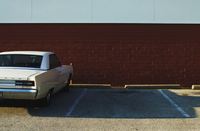How to check the history of a used vehicle

Buying a new car can be very expensive, and it loses a significant amount of its value as soon as you drive the car out of the dealership. For most people, it is a far better alternative to buy a used car. Whilst this will save you money in the short term, however, it is important to check that the car is in good condition or you could end up spending a lot of money on repairs and maintenance, and may even need to buy a replacement if it breaks down altogether. New cars typically come with a warranty, but this is not always the case with a used car, so it's important that you check absolutely everything about the car’s history and condition before making a purchase.
To help everyone make the right car decision here is how to check the history of a used vehicle.
1. Check the Vehicle Through its Registration Number
The best way to find out more about a used vehicle is to check its history through its registration number. A comprehensive vehicle check can tell you various things, which may be red flags. The car may still have outstanding finance, which needs to be paid, which could transfer over to you when you purchase the vehicle. It may have already been written off, which can cause all kinds of problems when you come to insure the vehicle. If the car isn’t the same as the one which comes back as being registered to that plate, it is a big telltale sign that the car was stolen and has had its plates switched.
2. Check the Seller
If you are purchasing a used car from a private seller, then one way to get a better idea of who they are is by checking their personal driving record. This will tell you if they have been convicted for any vehicle crimes in the past like grand theft auto or selling stolen cars. This is particularly important if the price of a used car is significantly lower than similar models on the market or if the seller seems suspicious. They may be trying to sell the car as quickly as possible because they have stolen it or because they have used it to commit a crime. Check what the car should be worth, and if they are willing to accept far less than this, make sure that you find out why.
3. Have an Expert Inspect the Car
When inspecting a new car, you should check both the interior and exterior to look for signs of damage or suspicious repairs. It can be hard to detect these things if you don’t know anything about cars, so take an expert with you to look at the vehicle. They will pay particular attention to the body panels as if these have been damaged in an accident, they may not line up properly after being repaired. Another telltale sign of damage is if the doors, bonnet, and boot don’t shut easily.
Buying a used car is a great option for many people as long as you do a thorough check on the history of the vehicle. Make sure you check the registration, the seller’s record, and get an expert inspection of the car. Remember, if the price seems too good to be true, it most likely is.

